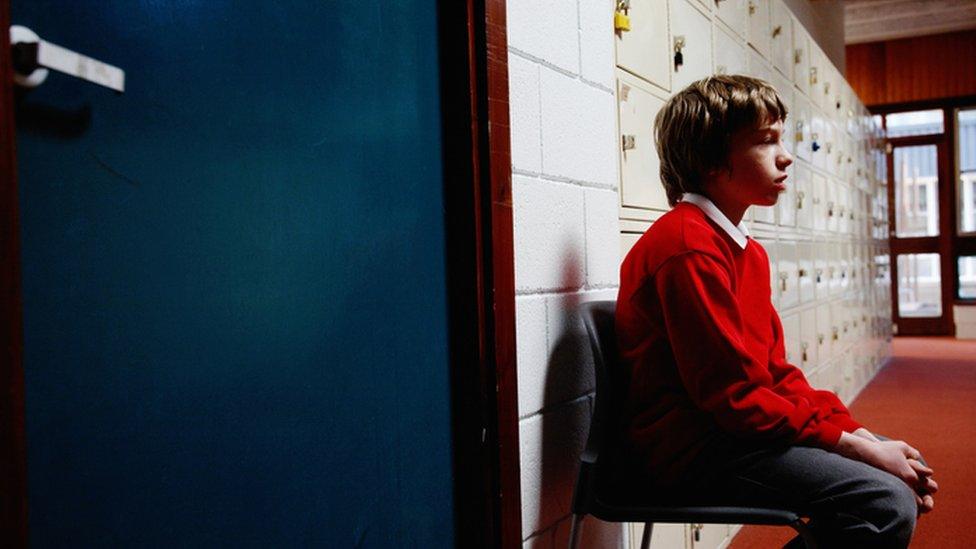School exclusions: what's legal and what's not
- Published

As the government publishes a review of schools exclusions, we ask what is lawful and what is not in England's state schools.
Why do schools exclude pupils?
Under the law, head teachers can only exclude pupils for breaches of the school's behaviour policy.
If a child's behaviour interrupts the flow of the lesson, causing disruption to other pupils' learning, they can be removed from class.
If this happens repeatedly, some schools will increase the penalty to a fixed-term exclusion.
They cannot exclude a pupil for bad grades or a medical condition or a special educational need.
What kinds of exclusions are there?
Fixed-period exclusions are for fixed periods of time, such as a number of days or even for part of the school day.
When added together, fixed-term exclusions cannot exceed 45 days. The pupil remains on the school roll during the exclusion.
Permanent exclusions happen when a pupil is removed from school permanently and their name is taken off the school roll.
These can only be used as a last resort.
However, pupils must remain on the school's admissions register until their parents or carers have been through (or decided not to go through) an independent review process.
All exclusions must be "proportionate, lawful and fair", according to law.
What is required of the school when excluding a pupil?
Parents must be notified without delay.
If a fixed-term exclusion is longer than five days, the head teacher must arrange suitable full-time education for the child.
With a permanent exclusion, the local authority must arrange full-time education for the pupil from the sixth school day.
For exclusions to be lawful, they have to comply with the school's behaviour policy, which itself has to comply with equality laws.
Informal exclusions and part-time timetables
These occur when a child is sent home for a short time to "cool off".
These are always illegal, even if the parents agree.
For it to be lawful, the exclusion has to be followed in writing with a letter to the parents informing them of their rights.
When a child is asked to attend for only part of the day, it is often called a part-time timetable.
As all children are entitled to full-time education, this is almost always illegal.
It is only lawful in very exceptional circumstances on medical grounds - usually when a child is having a gradual return to school after a serious illness.
Internal exclusions and isolations
Some schools adopt a policy where pupils can be placed in a room separate from class.
There have been reports of an increase in this practice.
If it is being used as a disciplinary penalty, it must be made clear in the behaviour policy.
Pupils must not be kept in seclusion or isolation rooms for longer than is necessary, and the pupils' health, safety and welfare must always come first.
Managed moves and referrals
These are the legal ways of dealing with school changes.
In the case of a managed move, there is a voluntary agreement between two schools, for a pupil to move from one to another.
It can only occur with the consent of all those involved, and the threat of exclusion cannot be used as a lever to make the parents agree to the move.
Referrals to other alternative provision or a pupil referral unit, can be made for the purpose of improving a pupil's behaviour.
It can be for some or for all of their education.
The law says parents must be given clear information about the placement, and how it will be reviewed.
From '?' by National Children's Bureau, IPSEA, and Association of School and College Leaders.